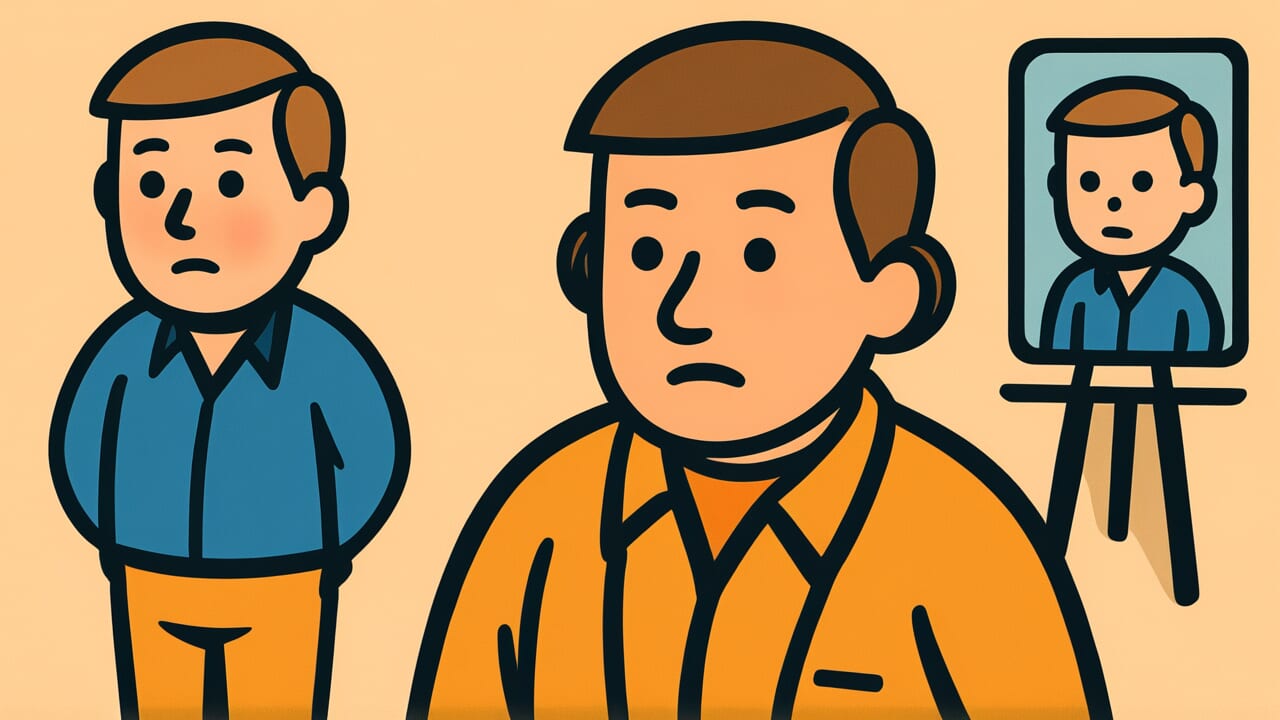How to Read “He who has a choice has trouble”
He who has a choice has trouble
[HEE hoo haz uh CHOYS haz TRUH-buhl]
All words use standard pronunciation.
Meaning of “He who has a choice has trouble”
Simply put, this proverb means that having many options often makes life harder, not easier.
When you have only one path forward, the decision is simple. You take that path. But when multiple good options appear, choosing becomes difficult. Each choice means giving up something else. This creates stress and doubt that wouldn’t exist with fewer options.
We see this everywhere in modern life. Students stress over college choices. Adults struggle to pick careers, homes, or partners. Even small decisions like choosing from a huge restaurant menu can feel overwhelming. The more choices we have, the more we worry about making the wrong one.
What’s fascinating is how this contradicts what we expect. Most people think more options equal more freedom and happiness. But this proverb suggests the opposite. Sometimes having fewer choices actually makes us more content. We spend less time wondering “what if” and more time enjoying what we have.
Origin and Etymology
The exact origin of this proverb is unknown, though similar ideas appear in various forms across different cultures and time periods.
This type of wisdom likely emerged from observing human behavior in communities where choices became more available. As societies grew more complex and offered more opportunities, people noticed that decision-making became harder. Simple farming communities had fewer life paths, while growing towns and cities presented multiple options for work, marriage, and lifestyle.
The saying reflects a universal human experience that became more relevant as civilizations developed. Trade, education, and social mobility created new possibilities. But with these possibilities came new anxieties. The proverb captures this timeless tension between opportunity and peace of mind. It spread because people recognized this truth in their own lives, regardless of their specific circumstances or culture.
Interesting Facts
The concept behind this proverb connects to what modern researchers call “choice overload” or “the paradox of choice.” This shows how ancient wisdom often predicts what science later confirms.
The proverb uses parallel structure with “who has” repeated, making it easier to remember. This repetition was a common technique in oral traditions for passing down wisdom.
Similar expressions exist in many languages, suggesting this observation about human nature developed independently across different cultures throughout history.
Usage Examples
- Manager to employee: “I see you’re stuck between the promotion and the transfer opportunity – he who has a choice has trouble.”
- Friend to friend: “You’ve been agonizing over colleges for weeks now – he who has a choice has trouble.”
Universal Wisdom
This proverb reveals a fundamental contradiction in human psychology that has puzzled people for centuries. We naturally desire freedom and options, yet we also crave certainty and peace of mind. These two basic needs often work against each other.
From an evolutionary perspective, this tension makes sense. Our ancestors needed to be alert to opportunities for better food, shelter, or safety. But they also needed to commit to decisions quickly to survive. Those who endlessly debated choices might miss out entirely. This created humans who both seek options and feel stressed by them. We want the security of knowing we made the best choice, but we can never be completely certain.
The deeper truth here touches on how our minds handle uncertainty. When we have no choice, we accept our situation and adapt. When we have many choices, we imagine all the possible outcomes. This imagination creates anxiety because we can envision both success and failure. We become our own worst enemy, creating problems that don’t actually exist yet. The proverb captures this self-created suffering that comes from having too much mental freedom. It suggests that sometimes limitations, rather than possibilities, bring us closer to contentment and action.
When AI Hears This
Humans evolved to grab the first good option and move on. This “good enough” approach helped our ancestors survive dangerous situations quickly. But modern life forces us to compare every choice carefully. Our brains must suddenly rank options against each other constantly. This creates mental exhaustion because we’re using the wrong thinking system.
Our minds work like efficient hunters, not careful shoppers. We’re built to spot adequate solutions and act fast. When forced to optimize everything, our brains rebel against this unnatural demand. The stress comes from fighting our own mental programming. We’re asking our “quick decision” hardware to run “perfect choice” software.
This mismatch reveals something beautiful about human design. Our ancestors needed speed over perfection to stay alive. The anxiety we feel when choosing shows this ancient wisdom still works. Our brains are actually protecting us from endless overthinking. What looks like weakness is really evolutionary intelligence in action.
Lessons for Today
Understanding this wisdom starts with recognizing when choice overload affects your own life. Notice the situations where having more options makes you feel stuck rather than free. This awareness alone can reduce the anxiety that comes with decision-making.
In relationships and teamwork, this insight proves especially valuable. When working with others, limit the options you present. Instead of overwhelming people with every possibility, narrow down to the best few choices. This helps groups move forward instead of getting trapped in endless discussions. It also shows respect for others’ mental energy and time.
For communities and organizations, this wisdom suggests that sometimes constraints spark creativity and satisfaction. Too many rules create frustration, but too few create chaos and anxiety. The sweet spot lies in providing enough structure that people can focus on what matters most. Rather than seeing limitations as restrictions, we can view them as helpful boundaries that free us to act with confidence. The goal isn’t to eliminate all choices, but to recognize that having everything available doesn’t always serve our best interests.



Comments